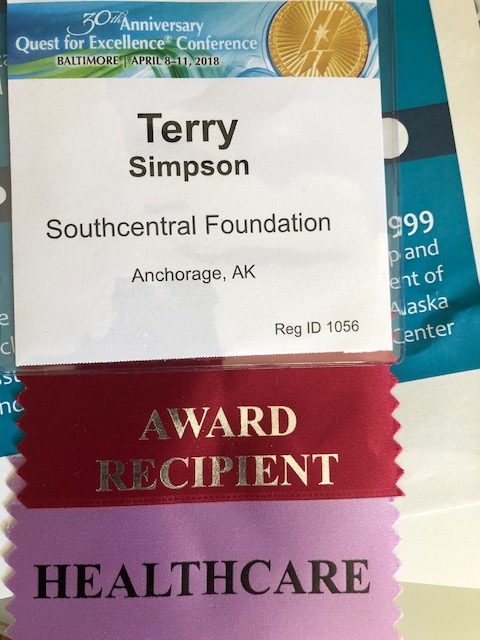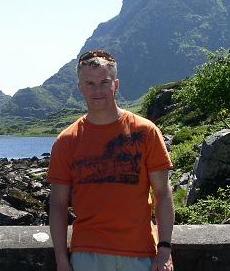 Can you imagine going from worst to first? We hear about those stories in people’s personal lives, or in sports, but where this makes the greatest impact is, in my opinion, healthcare. For Alaska Natives, our healthcare system WAS the worst: it had the worst healthcare metrics in all of the United States. We had the highest level of infant mortality, shortest lifespan, and highest rate of death from infectious diseases. Today, twenty years later, our healthcare system is the model for healthcare systems around the world.
Can you imagine going from worst to first? We hear about those stories in people’s personal lives, or in sports, but where this makes the greatest impact is, in my opinion, healthcare. For Alaska Natives, our healthcare system WAS the worst: it had the worst healthcare metrics in all of the United States. We had the highest level of infant mortality, shortest lifespan, and highest rate of death from infectious diseases. Today, twenty years later, our healthcare system is the model for healthcare systems around the world.
That is the story of SouthCentral Foundation, the place where I go to see my doctor. The primary care system that provides care for more than 65,000 Alaska Natives from the Anchorage area.
In my lifetime, I have seen, and been a part of the change that has resulted in the country’s foremost recognition. SouthCentral Foundation will be getting our second Malcolm Baldrige Award – the only healthcare system to do that.

The Malcolm Baldrige National Quality Award (MBNQA) is presented annually by the President of the United States to organizations that demonstrate quality and performance excellence. Three awards may be given annually in each of six categories, of which healthcare is one. It represents the highest level of recognition given for any healthcare system – think of it as the Nobel prize of healthcare, or winning the Super Bowl.
You may have heard about the Phoenix Veterans Hospital healthcare system – well, I was a staff surgeon there in the early 1990’s. If you asked us in the 1990’s our primary care system in Anchorage would have been delighted to get that kind of health care. Today, the VA in Phoenix is mired in challenges that are minimal compared to the challenges we faced. Today the Phoenix VA looks to Alaska as a role model for change. What was our secret?
We started by taking Healthcare Back from the Government
First a bit of history: SouthCentral Foundation (SCF) was established in 1982 as a foundation under Cook Inlet Region (CIRI) to provide healthcare. Healthcare, at that time, was under the control of the Indian Health Service. SCF first took the contract for dental, optometry, and behavioral health in two steps, first in 1985 and then fully from IHS in 1987. There were fewer than 100 employees at that time. The baby steps proved we could provide care, at least at the same level of care that the IHS was providing. Then, in 1998 we had assumed full management of the entire primary care system for the Anchorage area.
If you ask Ileene Sylvester about how dental use to be run in the 1960’s she will tell how her family would go to the hospital where there was one dentist and wait all day. They usually picked Christmas day because there were fewer people in line. Again, they would wait all day, and the dentist wasn’t terribly nice, in fact anything but. Today SCF manages over 160 dental chairs, and in 1994 opened the door to the first orthodontic clinic in Alaska for Native children.
If you wanted to see the doctor, just a visit, you would go to the hospital and wait in a clinic. Most of the time you would be there all day. You wouldn’t know the doctor, they changed often, and you hoped your day wouldn’t be wasted. Under IHS they boasted that one doctor saw over 160 patients in a day. This was not a good thing.
We are not patients, we are customer-owners
When we took over the system we went to the people and asked what they wanted changed, what was important to them. First to change was the name “patient.” We no longer call people a “patient” – which is a paternalistic word. Instead they are our “customer-owners.” It seems small until you realize if you own something and go in for service, you are treated differently. If you own a restaurant and go there for a meal, you are treated much differently. We wanted to embolden the experience of receiving healthcare, and the first step was to change the dynamic and the language. You were no longer a “patient” that things were done to, now you were a customer, and not only a customer, but you own a part of the system. No longer was the “owner” the US Congress in Washington D.C.
We changed other things, because waiting to see a doctor isn’t fun for anyone. Today you can see your primary care physician the same day. We also got rid of the anonymous doctor who didn’t know you, your family, your struggles. Today not only will you see your doctor, who knows you well, if you need labs drawn, the labs will be available before the end of your visit. Having access to your physician changed something – emergency room visits are down by 1/3 to 1/2 for many diseases.
Childhood asthma is difficult, I know, I have a son with asthma. Having access to a physician means increasing treatments as needed, changing medicines. As a result he has never had to go to the Emergency Room for a severe attack. I am not alone, our rate of children going to the ER for asthma is down 50 per cent.
Relationship Based Medicine
We believe the doctor should have a relationship with the patient. Some have called this “relationship based medicine.” Your doctor has a relationship with you, knows you personally and you know them. When I went in to see my doctor, he asked a couple of questions, closed his computer and asked, “What would you like to talk about?”
 That is my doctor, Steve Tierny. I was taught that we should be distant from our patients, but that was wrong. Distance from your patient means you may not know them, and you certainly don’t have much influence. So Steve is not only my doctor, he is my friend.
That is my doctor, Steve Tierny. I was taught that we should be distant from our patients, but that was wrong. Distance from your patient means you may not know them, and you certainly don’t have much influence. So Steve is not only my doctor, he is my friend.
I was there because my wife wanted me to have some labs and a ‘check up.’ When Steve came up to talk to me he said, “Your wife said we should do some things.” I was thinking we would plan a trip somewhere, but no – she was concerned because I had not ever had a “check up.” As a result I now take a baby aspirin once a day. If he had told me I should take other medicine I would have – because I know him and I know he knows me well. As doctors, we all know everyone looks up their symptoms on Google and you can always find contradictory information about medicine you are asked to take from Google and from your aunt. There are many reasons we can make up to not follow our physician’s advice. But, if you have a relationship with your physician, then that’s the person you trust in a world of many opinions. Much like your favorite restaurant, you go no matter what Yelp says, and if someone asks for your recommendation (because they trust you) then they will probably go to that restaurant as well.
Healthcare has come a long way for Alaska Natives. The Chairman of our Board, James Segura was just telling me how two of his brothers died because they didn’t have access to healthcare. Today, that care is available, accessible, and not to mention first rate for every Alaskan Native.
Oh, and infant mortality is the lowest in the country, our lifespan has doubled, and hospitalizations have decreased because people can get their care easily, without cost to them – not even a copay. We are proud of our system – and we just got started.
I am proud of this system, proud to be one of the 65,000 customer-owners, proud to have sat on its Board of Directors, and even more proud of the many employees like our President and CEO Katherine Gottlieb, Ileene Sylvester, Steve Tierny, Doug Eby, and I am leaving a whole bunch out because the over 2300 employees are amazing. Every single one of them goes through training to learn that we are not just treating “patients” we are treating family. Thank you for taking my healthcare system from worst to first.
